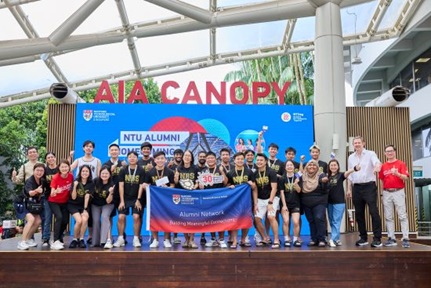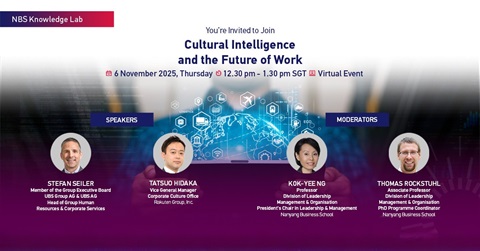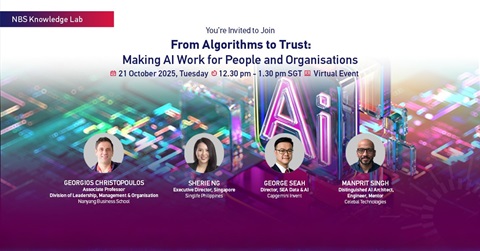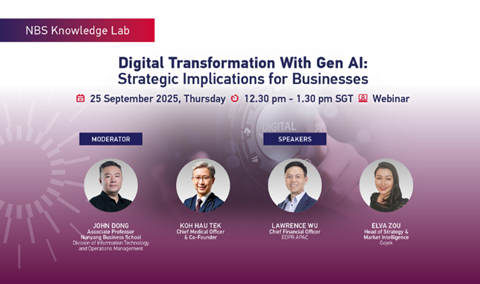Exploring Opportunities for AI Applications in Healthcare
At the Nanyang Business School (NBS) Alumni Leaders Dialogue, NTU Nanyang Fellows MBA Alumnus Dr Gary Ang identified the opportunities and risks in adopting AI technologies in the treatment of chronic diseases.
 Dr Gary Ang addressing a diverse crowd at the Lee Kong Chian School of Medicine.
Dr Gary Ang addressing a diverse crowd at the Lee Kong Chian School of Medicine.
As a premier business school within a leading technological university, NBS is committed to staying ahead of industry trends and fostering interdisciplinary collaboration. With more alumni working in or exploring careers in healthcare, NBS is strengthening its support for continuous learning and professional development in this space.
To encourage greater integration across disciplines and strengthen connections within our alumni community, the NBS Alumni Relations team organised an NBS Alumni Leaders Dialogue on 22 May. Titled "The Use of AI in Chronic Disease Management," the event featured Dr Gary Ang, a practising medical doctor with notable research experience in diabetes. The dialogue session was well-attended by a diverse audience, which included medical practitioners, researchers, and professionals from the healthcare industry.
.jpg?sfvrsn=bbdc85f7_1)
Dr Ang gave a clear overview of the adoption of AI in the diagnosis and treatment of chronic diseases.
Addressing Gaps in the Industry
Held at the Lee Kong Chian School of Medicine at NTU’s Novena campus, the event featured a lively and succinct presentation by Dr Ang on the growing use of AI in healthcare, particularly in managing chronic conditions such as diabetes, hyperlipidaemia, and hypertension.
Applying business principles to understanding the adoption of AI technologies in the healthcare industry, Dr Ang identified three key gaps that AI can help address. He first highlighted the prevalent issue of delayed diagnoses, leading to poorer medical outcomes for patients. The second gap raised was care fragmentation, which refers to the lack of integrated care among patients caused by factors such as patients lacking a regular doctor or the phenomenon of specialisation walling. Finally, Dr Ang spoke about the lack of individualised treatment plans and the phenomenon of poor adherence to medical advice.
The adoption of AI can bridge these gaps in various ways. For instance, AI algorithms and computational models can analyse complex medical data to anticipate health risk factors, optimise outcomes, and synthesise large amounts of granular information to increase integration in medical care. AI applications are also well-suited to tailoring actionable plans to individual patients. For instance, the use of differentially generated encouragement messages that align better with patient personality types may improve adherence. On a practical level, the use of AI applications can help control spending with a focus on early detection and prevention of costly complications.
Risks and Limitations
Dr Ang also addressed the limitations and risks of applying AI in healthcare. He highlighted ongoing concerns around the accuracy and reliability of Large Language Models (LLMs), especially given variations in clinical guidelines across regions and the heightened risks posed by outdated information. Ethical and legal considerations, particularly the handling of sensitive personal data, were another key focus. Dr Ang also touched on professional concerns surrounding AI adoption, including the fear that it could contribute to industry-wide deskilling.
In this way, Dr Ang offered a balanced and realistic view of the prospects of AI technologies in healthcare. Despite the potential of available technologies, it remains tempered by risks and concerns. To address these, Dr Ang offered examples of mechanisms that are or can be put in place to mitigate such risks or prevent issues from arising. For example, implementing evaluation processes and incorporating user feedback loops can help safeguard the reliability and accuracy of AI tools.
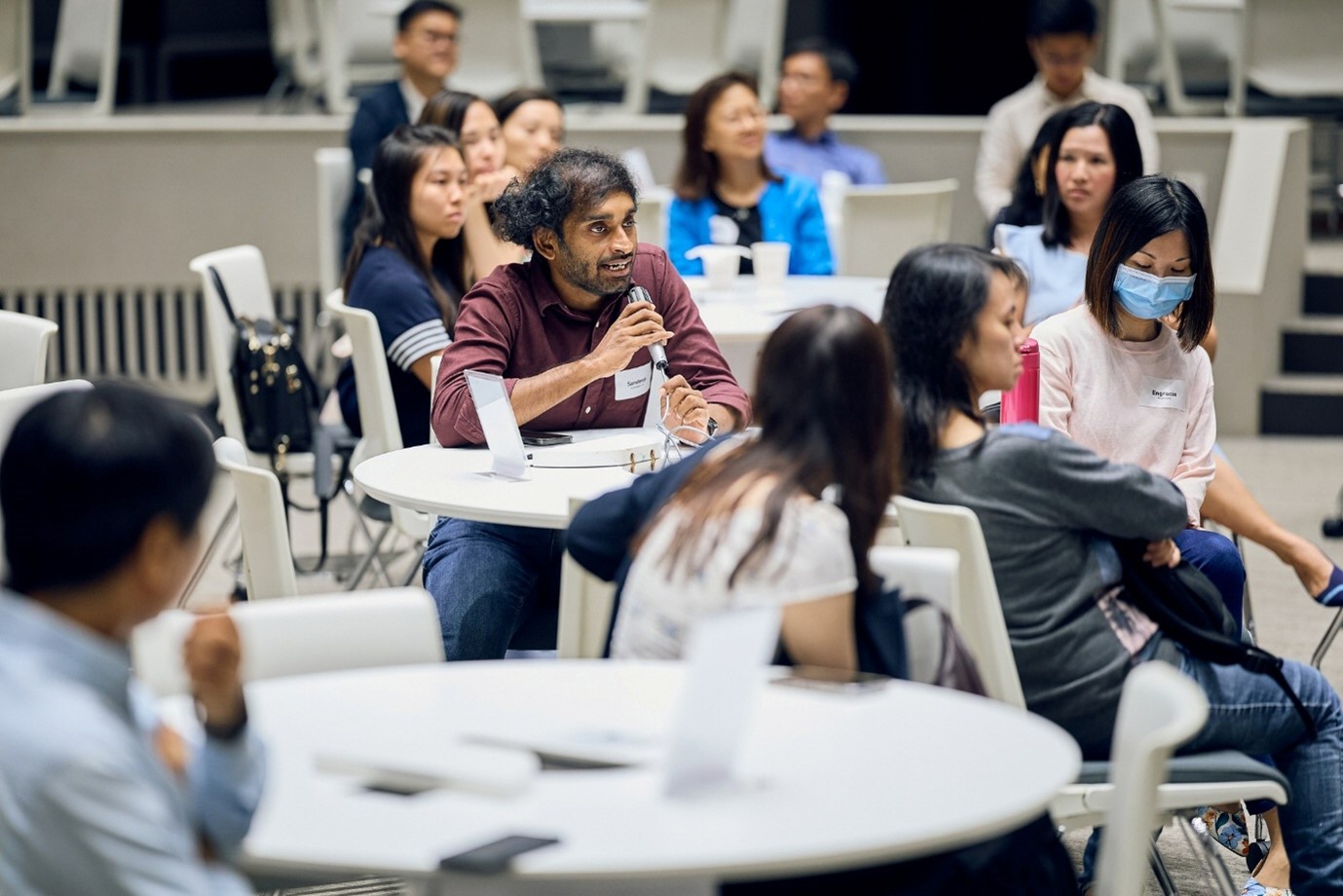
The audience participated enthusiastically in the Q&A section, covering a broad spectrum of issues.
After the presentation, the audience participated actively, taking the chance to clarify various thoughts and concerns. Dr Ang addressed a broad spectrum of issues, ranging from the state of AI adoption in healthcare in Singapore to the reliability of such technologies and even pivoted to less-obvious areas for AI adoption, such as in Traditional Chinese Medicine.
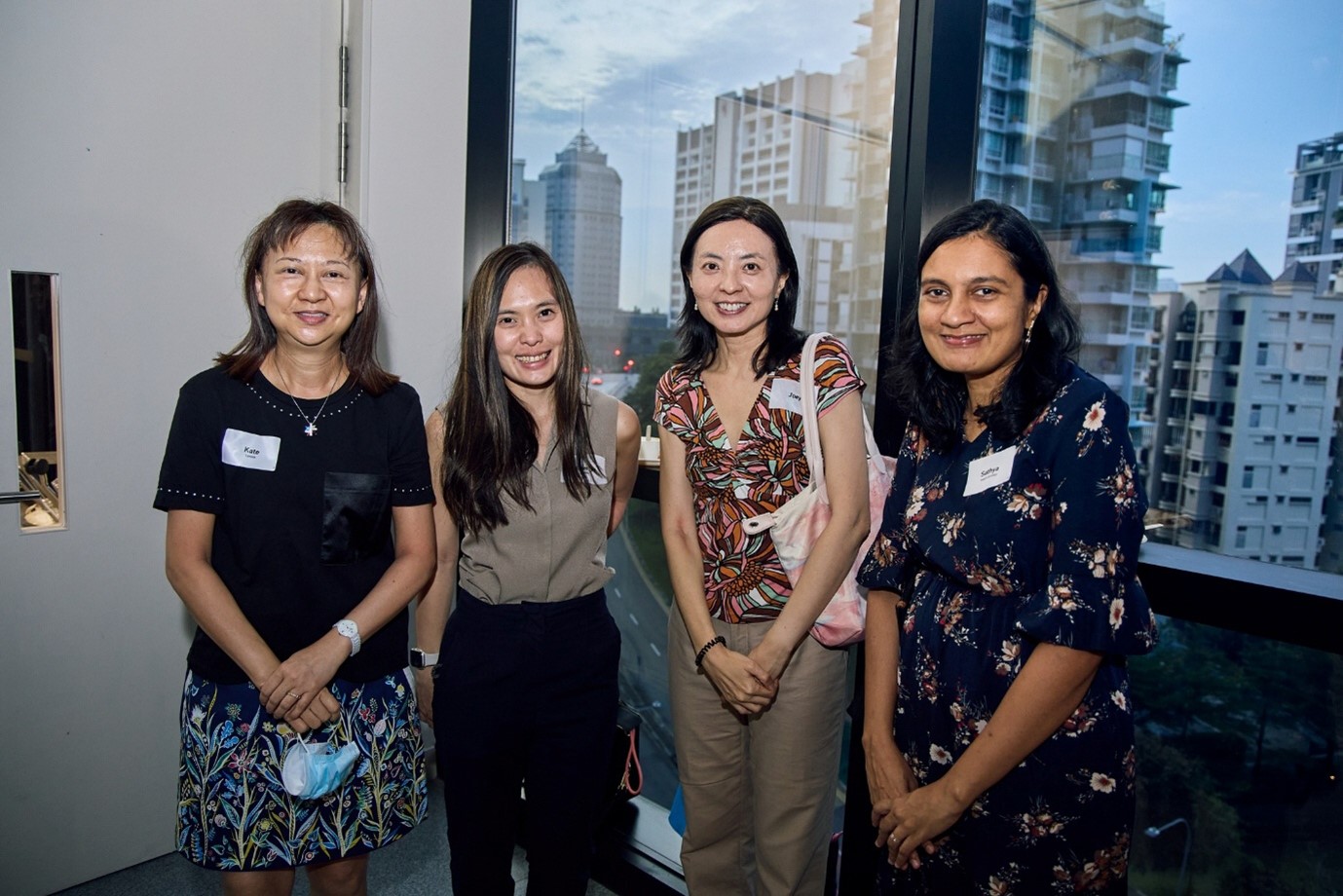
The event was attended by a diverse audience that included healthcare professionals,
researchers, and those working within the medical industry.
Towards Greater Synergy
With the rapid development of AI technologies, it is vital to weigh the implications, practical limitations, and the untapped potential of their application in medical care. By considering where they can be most effectively applied, how risks can be managed and what market opportunities will arise, they can be adopted responsibly, improve medical care and allow innovative businesses in the industry to thrive.
Organised by the NBS Alumni Relations team, the event aims to leverage the overlaps and synergies in business research and the medical industry with the hope of establishing an NBS healthcare alumni network. The success of this dialogue session testifies to the significant interest in this space and the need to explore the possibility of partnerships and collaborations. If you would like to take part in the NBS healthcare alumni network, please email [email protected].

.tmb-listing.png?Culture=en&sfvrsn=d48abb4_1)
